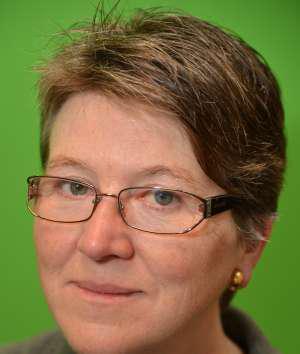Vulnerable women are bearing the brunt, say Neal Russell, Sophie Windsor, and Susan Bewley
A report released last week by Maternity Action reveals the distressing experiences of women who are faced with exorbitant NHS charges for accessing maternity care in England. It makes uncomfortable reading for those who’ve been unaware of what is happening in the NHS and should be a clarion call for change.
Many comparable European countries offer free pregnancy care to undocumented migrant women regardless of immigration status, whereas the UK charges a disproportionate 150% of the NHS tariff. Additionally, hospitals share patient details with the Home Office if bills are unpaid, effectively linking healthcare seeking with immigration enforcement—a practice still occurring despite suspension of routine data sharing, as outlined in the memorandum of understanding between NHS digital and the Home Office.
This report confirms the impact of the government’s stated intention to create a “hostile environment” for undocumented migrants in the UK. The policy is having a devastating effect on some of the most vulnerable pregnant women, raising serious concerns about the potential of poor health outcomes for women and their newborn babies.
NHS charging regulations have been significantly reinforced recently, including the introduction of a 150% charge for secondary hospital care. The October 2017 regulations (applying to England so far) introduced a requirement to charge upfront, and withhold treatment from those unable to pay, unless the treatment is “urgent” or “immediately necessary.” In these cases charges are applied retrospectively. Emergency department and GP care are presently exempt.
The charges were opposed by the Faculty of Sexual and Reproductive Health, as well as 192 other organisations. They are now applied to people who are unable to prove their immigration status when asked for documents—being therefore defined as “overseas visitors,” despite this including many people who are actually living in the UK.
Pregnancy care is classed as “immediately necessary” and should always be provided without waiting for payment. However, the report makes clear that fear of charging—as well as threatening letters, phone calls, and debt collection practices, combined with linking of NHS debts to fear of immigration enforcement practices such as detention and deportation—is having profoundly negative consequences for women.
The undocumented migrant women in the report, similar to previous studies, had generally been living in the UK for several years in poor circumstances. Far from the mistaken popular impression of “health tourists” that inspired the charging regulations, these women have often fled persecution, sexual and domestic violence, and domestic servitude, but had asylum applications refused, or expired visas. Unable to pay huge fees (in many cases more than £6000) for maternity care, pregnant women, new mothers, and babies are facing deepening destitution.
The report also exposes the gender inequality of the charging system. Several women, on discovery of their pregnancy, were abandoned by their partners, upon whom many women’s immigration status actually depends (e.g. spousal visas), yet it is the woman who must pay. Unable to claim benefits or work legally, and faced with unaffordable charges, women are vulnerable to sexual exploitation and abusive relationships, being unable to report sexual or domestic violence due to fear of immigration enforcement. To avoid charges, women have even had to consider adoption or termination of pregnancy—although the latter is now also chargeable at 150% upfront since October 2017.
Studying health outcomes or publicising stories of the experience of undocumented migrants is extremely challenging. Many are afraid to speak due to a real risk of being detected by immigration authorities. Maternity Action managed to gain consent for anonymised stories from 16 women who described poor health, but no larger study of outcomes for those who have been charged has been performed.
Recent national Confidential Enquiry reports do, however, reveal increasing disparities in maternal mortality in minority ethnic groups, including a greater than four times higher rate of maternal death in black women, and a concerning increase in the rate of stillbirths and neonatal deaths among their babies. Migrants may be over-represented in these groups, and women from minority ethnic groups may be more likely to be questioned, but charging status was not recorded in these reports. Nevertheless, deterrence from antenatal care and delivery care due to charging could be contributing to these worsening outcomes.
The rise in anti-migrant sentiment has made restricting healthcare to undocumented migrants more politically acceptable, but many European neighbours stand in contrast to the UK. In France, attempts to reduce free coverage of undocumented migrants have been opposed by the government and even the right wing of the senate did not attempt to remove free maternity care. In Spain, advocacy by health professionals recently helped overturn restrictions to healthcare for undocumented migrant adults, after increases in emergency care usage and mortality led the government to conclude that restrictions were neither humane nor cost effective. Again, the law had in any case exempted pregnant women and children from any restrictions.
The government’s “hostile environment” and the exaggerated narrative on health tourism have led us down a very dangerous path. Research could explore whether and to what extent the charging system has been responsible for the worsening health outcomes in mothers and newborns that we already know are occuring from Confidential Enquiries. And an independent enquiry into all charging should also happen.
Yet it is not necessary, and indeed it would be unethical, to wait for any further evidence of harm to know what must be done; the report from Maternity Action already tells us that vulnerable women are bearing the brunt of regulations now. Their stories provide ample evidence for individual doctors and others to write to their MPs. Obstetric, midwifery, and child health leaders must support calls for an immediate suspension of the charging regime.
 Neal Russell, paediatric registrar and clinical research fellow, St George’s University. Twitter @NealJRussell
Neal Russell, paediatric registrar and clinical research fellow, St George’s University. Twitter @NealJRussell
 Sophie Windsor, consultant midwife, Lewisham and Greenwich NHS Trust. Twitter @SophieDWindsor
Sophie Windsor, consultant midwife, Lewisham and Greenwich NHS Trust. Twitter @SophieDWindsor
Competing interests: Expert panel member, London Maternal Deaths; expert witness; NICE committee member, Update on Multiple Pregnancy Guideline; MBRRACE reviewer for perinatal deaths in multiple pregnancy. All views are my own.

Susan Bewley, professor [emeritus] of obstetrics and women’s health, Department of Women’s and Children’s Health, King’s College London. Twitter @susan_bewley
Competing interests: I am a trustee of Maternity Action and wrote the foreword to this report.
